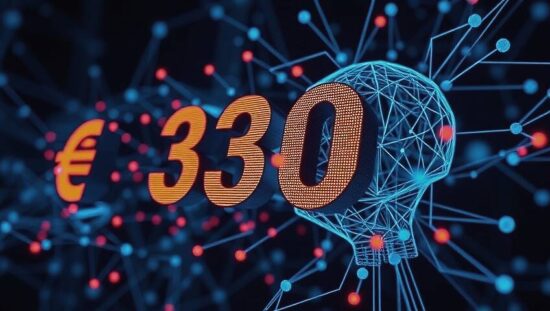A recent study by the Institute of the German Economy (IW) in North Rhine-Westphalia, Germany, suggests that artificial intelligence (AI) could generate up to 330 billion euros in gross added value in the country. According to the study, published in the Handelsblatt, AI can contribute to compensating for the lack of labor due to demographic changes.
The study’s author, Hubertus Bardt, emphasized that three conditions must be met for the AI potential to be fully exploited. Firstly, more companies must adopt AI, with currently only one in five companies in North Rhine-Westphalia using generative AI and this number should increase to one in two. Secondly, research and development must uncover new fields of application. Thirdly, workers freed from tasks by AI should utilize their free time for value-added activities.
The study shows that North Rhine-Westphalia has the highest potential for AI-generated value, at up to 67.8 billion euros, among all German states. In an interview with the Handelsblatt, the state’s Minister-President, Hendrik Wüst, stated that “no other region in Europe is better suited to become a leading AI location” than North Rhine-Westphalia. Wüst attributed the state’s strengths to its unique combination of research and practice, as well as its attractive location, with institutions such as the Lamarr Institute, the Fraunhofer IAIS and excellent universities. Additionally, the state is home to numerous “Hidden Champions” in various industries, which are not as well-known but still play a significant role in the economy.





